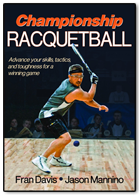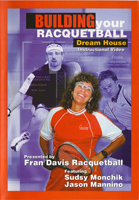Advanced Strategizing to Avoid Plateauing
[caption id="attachment_1322" align="alignright" width="199"] Fran Davis[/caption] Just because some things may sound elementary doesn’t mean they are not important in intermediate and advanced levels of play. Some players get to the intermediate levels while ignoring the core strategies—which is why they plateau. Also, after you reach the intermediate and advanced levels of play, there’s more to know. Remember…when you strategize, you are being proactive, which is taking control of the match. You are in a much better position to win, which is your goal. Now I am going to give you a list of ADVANCED STRATEGIES to help you carry out your










